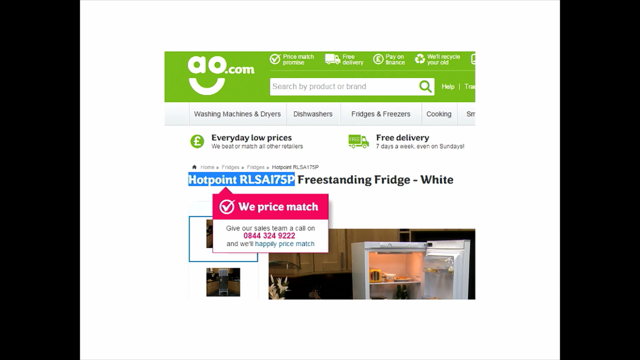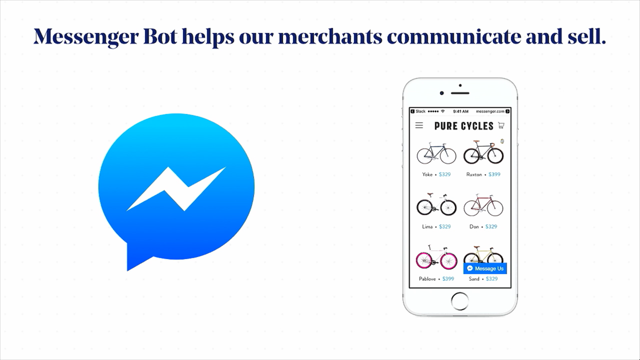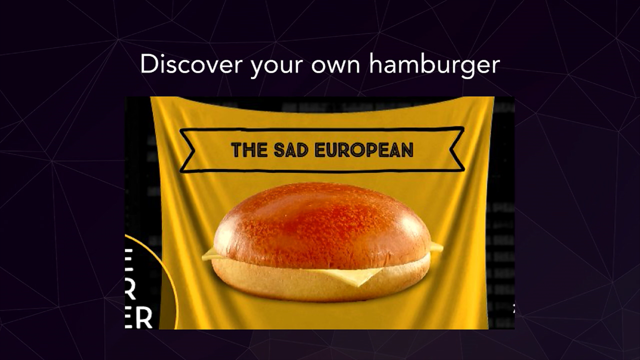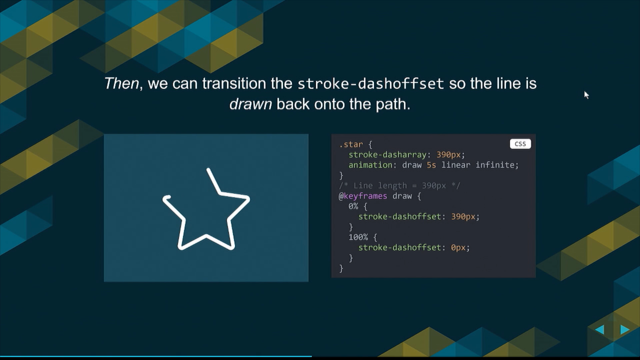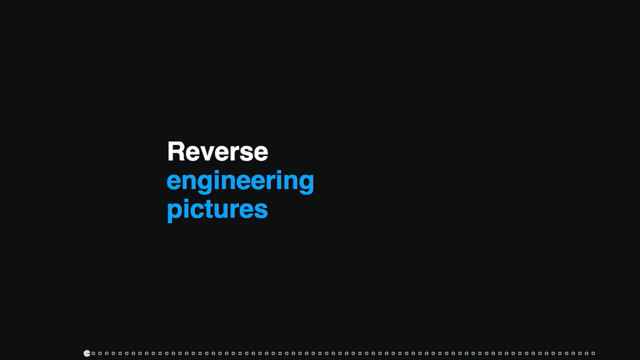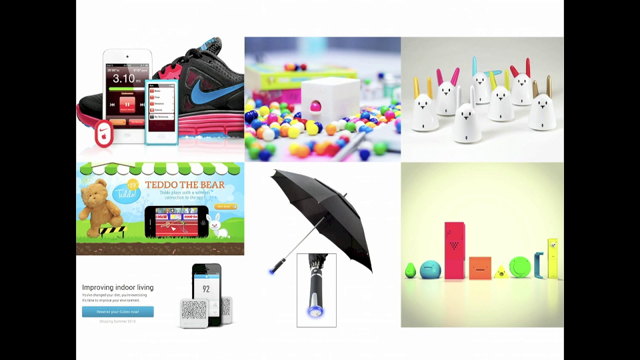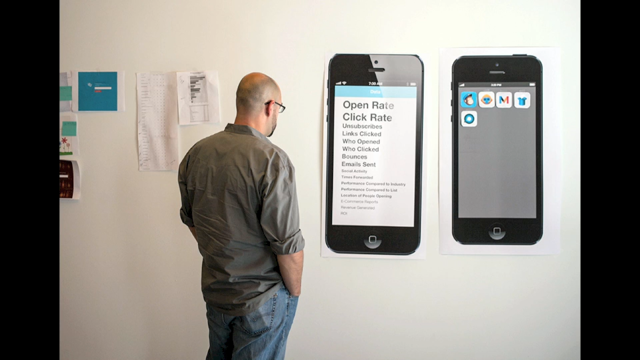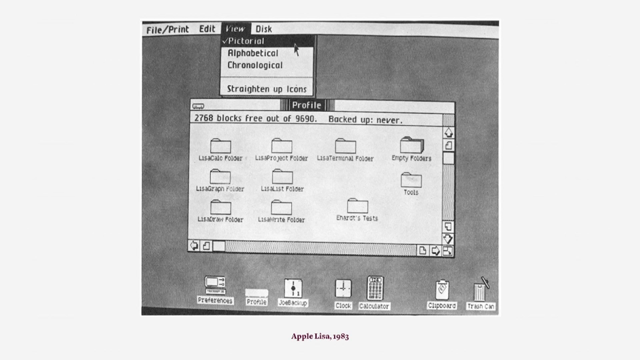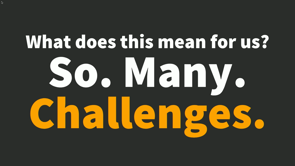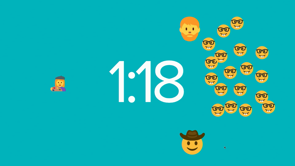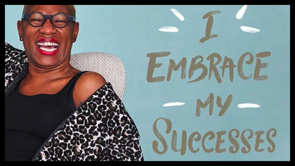Great design teams start with transparency
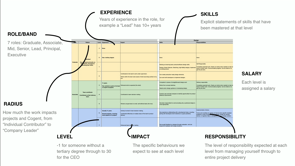
(upbeat music) (audience applauding) - Oh no, I've been in the toilet just hoping that I didn't get the disco design, disco presentation, but we'll see how it go. How many people in your organisation know how much you earn? Your manager, their manager, some HR people, some finance people, maybe the CEO, might be a handful, five to 10. In my company, 53 people know how much I earn, and I know how much they earn as well, and that's not because I'm the general manager, it's because everybody in our organisation knows what everybody else is paid.
So I work at Cogent, as John said, I'm the general manager. I have a product background and I head our product and design at Cogent, about half my team are designers, and at Cogent, we help teams build great products. We are a software development consultancy, and we work at both ends of the scale.
We help our EA boost their teams when they need more developers or designers and we also help startups build their first things, so we build a little product team for them, and pair them off and they go off and build something great, and hopefully bring something interesting into the world. Sorry.
We've been running for about 12 years and there's been one core value that's really driven a lot of Cogent's business.
This clicker's no one's friend.
And that core value is transparency.
It's really part of our DNA.
It's been with us for 12 years and it continues to be, and the most visible manifestation of this transparency is in our visible salaries that everybody knows what everyone else is paid, but what's that got to do with being a design leader and why am I here today? Well, ultimately, as design leaders, you are responsible for hiring your team, ensuring that they are engaged and happy to be there, that they're producing great work, and they want to stay, and that they are paid fairly, and as a leader, as some of our other speakers have mentioned, you're a designer of people.
You are designing your team to be the best it could possibly be, and I hope you want to foster in your team equality and engagement, because they're good things to do. They're morally sensible things to do, but also because they are great for business, so research shows that diverse teams lead to better outcomes for businesses, diverse teams have better conversations that better represent the diversity of the people that you're building your products for, and having equity in hiring, as Andrew spoke to, can lead to a more diverse team, and, sorry.
Engaged teams are good for business too.
I'm in the trenches out there with you guys trying to hire designers all the time.
It is not easy.
We are a small town in Melbourne and it's difficult, so if you've got great people, engaging them and keeping them with you is really good for business, 'cause it keeps your business stable and you're working on great problems to solve rather than hiring problems.
So how do you ensure that your unconscious bias is not at play when you're hiring, and that your team feels engaged and you can retain the talent you have? At Cogent, our answer lies in transparency, and today, I'm going to give you some really practical tools that we use everyday at Cogent that help drive equality and engagement, and hopefully give you some ideas to take away.
And why the hell should you listen to what I have to say? Because 100% of our team would recommend working at Cogent, so we think we're getting some things right. This is based on our engagement survey that we ran in January, we used the Culture Amp survey that I imagine some of your companies use, and we take culture really seriously at Cogent. We're a people business so we need to make it a good place to work, and for this particular question, we're six points above the benchmark, of the top 10% new tech companies in the world. We could have chosen any benchmark, but we chose this one because we think we hire great people, and our people could go and work in the top 10% new tech companies in the world, so we wanna make sure that we are providing on benchmark or above for our people. So I'm talking about transparency, what does that actually mean? This is how we define it at Cogent, and you'll notice that it doesn't actually say we show everybody your salary and freak you out. Our commitment to transparency really exists as a way to ensure that we operate with integrity, and by proxy, a bunch of things that we value, such as authenticity, trust, and safety, like John was saying earlier.
So I'm gonna tell you three stories today.
All of these led to great outcomes for our team members and also for Cogent as a business.
And let's start at the start with hiring.
How do we aim to reduce unconscious bias in our process? I'd like to introduce you to Kath.
Kath is one of our designers.
She has a really strong research background but is now pretty much a full stack unicorn, and she is currently working on a Cogent venture called Chargefox, which has been in the news quite a bit these weeks, because it is an electric vehicle charging network, and Kath works on everything from the app where you can find the charger that you wanna put your car on, all the way through to the sticker that'll find on that charging station that tells you how to charge your car. And Kath was hired at a certain band and pay, like most people are, based on interview discussions and her self-assessment of her skills.
And during the process, she didn't blow too much smoke up her butt, which is a direct quote from Kath.
And you might notice that Kath is a woman, and in our culture, women are not well socialised to negotiate for themselves, and why I bringing this up? Well, on average, Austrian women have to work 66 more days than men to earn the same amount, and research done by the University of Melbourne reveals that there's a few factors at play that contribute to this gender gap, and they are, bias in hiring, lack of negotiation by women, and keeping pay a secret. This sucks.
I do not want to work two months more than a man to get the same amount, just because I'm a woman. So at Cogent, we explicitly address these factors, aiming to reduce bias, reduce the need for negotiation, and take away the secrecy.
So how do we do that? As with most big business problems, we answer it with a bloody great big spreadsheet (chuckles).
This is our salary table.
Hands up, who in the room in your teams has a skills matrix of some sort where you have what you would like to see in each designer? Great.
Ours is very similar, but it also has a very clear salary attached to each level and it's, as you can see, quite detailed.
So let me talk you through how it works.
You can read the detail up there, so I'll just run through it at a high level and I'm happy to talk through this in more detail at lunchtime, but the table has seven roles or bands, all the way from graduate through to executive, and each of those bands has a radius of impact associated with it and estimate of the number of years that we expect to see in that band.
A set of levels which go into more detail about the expectations we have, so at each level, we have the level of impact a person is expected to have, all the way from they're just impacting themselves, through to a team, a project, or the whole company. The skills they've mastered, the responsibilities that they have demonstrated that they can take on, and of course, the salary. And what this is is a really rich picture of what we expect and how much we will pay for the experience that people bring to Cogent.
And of course, in life, nothing is purely objective. There's always subjectivity, but by making Cogent's expectations transparent, we find that we reduce the subjectivity, that we can have a more honest and detailed conversation about the skills and experience that people are bringing.
And we literally share this information during the hiring process.
So everyone is on the same page, or the same bloody great big spreadsheet as each other from the beginning.
And I'll show you how this fits into our process. This probably looks familiar to you, it's not that different from a normal hiring process and quite similar to what Andrew was mentioning earlier, but let's walk through it.
So someone applies for a job at Cogent, we do a skills assessment, we also do a values interview, value is very important to Cogent and we want to express that to candidates and see if there's good alignment there.
Then we, if people get through to this stage, we do a salary assessment, and that means that me or our other GM and a senior person from that discipline will sit down with the candidate in the room, with that spreadsheet open, and we will explain the spreadsheet just as I've just done to you, and we start talking, we talk about stories, we talk about level by level the experience that they've had and how that has played out in their career, and how many times they've done it, because the number of times you've done a skill sort of equates to how much you move up the table. If you're brand-new at something, then you, or the certain level, if you've done it so many times, you do it with your eyes closed, then you're probably further up.
So we hear stories, we talk about how they've demonstrated those skills, and importantly, this isn't about blowing smoke up your butt, it is trying to find the level that they're comfortable at operating.
As a consultancy, we will chuck people onto a project at the level we've assessed them at, and if we misassessed them, then they may not be comfortable.
So we wanna make sure that we give them the right support and I imagine in your teams, you want to make sure that you have a very clear view of their skill level, so you can help them develop. There's usually some back and forth, we have a lot of conversations, it usually goes for about an hour an a half, and generally, we end up with a band of about three levels. It becomes quite clear when you get to a certain level that someone's experience is topping out, because they don't have as many stories, and so we talk about those three levels and we agree in that meeting what level they'd be at, and that forms the basis of our offer.
Is this freaking anyone out? Can imagine sitting in an interview and talking about your salary this openly? It's actually not as hard as it seems.
I was certainly freaked out and now I've done so many of them, it feels more natural than we don't do that normally. So our salary assessment is fully transparent, and it's a collaborative process.
We hope it removes disparity and discrimination and 90% of the time, we get this right, and everyone's happy.
But we do do a three-month review after that person's started, just to check in to make sure that our skills assessment was accurate.
And sometimes we don't get it right, like in Kath's case. So a few months in, and Kath's peers, the other designers in the team noticed that she was operating at a higher skill level and taking on more responsibility than what we had assessed her at, so in her regularly scheduled three month review, we let her know that we'd like to move her up a level, that her peers have made the case for her to move up a level.
She was gobsmacked.
That is not a normal thing to happen in a probationary review and was thrilled that she had gone up a level and would get more money in her pay packet, and a few factors led to this.
Everyone knows what level everyone else is on, so there's no secrecy.
Everyone knows what is expected at each level, removing bias, and as I've said, Kath did not need to negotiate for herself, because her peers did it for her.
They knew where she was on the table, and thought that she should be a level above. Kath is a very loyal and committed team member at Cogent still, she's just come back from maternity leave, and that's because she's great, but also because she feels valued at Cogent. Even though we misassessed her to begin with, she still got the fair pay that she deserved, and back to our survey, these are a couple of questions relating to pay and role clarity, and they're either on above the benchmark, so this approach is working for us.
Now, another story about transparency driving equality and engagement, and this one is sort of the opposite to Kath's story, it's about what HR people would call underperformance, which is a term I hate, and I imagine it's something you've had to deal with in your teams and it's never easy, and it's never ever black and white.
So it's really a story about needing help.
As I've mentioned, salary discussions in the interview process are about finding the level that a person can operate comfortably.
And we were in a busy time at Cogent, we had a few projects kicking off and we needed extra help, so we got a contract designer in, all our contractors go through the same process as our permanent staff.
We were really excited to find this contractor, they had a great personality, great energy, really great values fit with Cogent, and we assessed their skills at a senior level. However, it became pretty obvious that they were struggling, we'd just chuck them on this project and off they went, the team noticed it, the client noticed it, and more importantly, the person wasn't doing great. Their mental health wasn't fantastic, they were out of their depth.
And it turns out that they'd always had the support of a lead designer at the higher end of the skill set, where we assessed them, and we had not given them that lead designer to support them.
We'd thrown them in the deep end with no floaties, which isn't a great place to be.
We expect, on the Cogent salary table, a senior member to be able to do that, but this person wasn't able to do that.
So like we had an acute situation, we added a lead designer to that project at our expense, 'cause it was our mistake and it wasn't for the client to pay, and we corrected the project and delivered a successful outcome.
But we had a designer that had been misassessed on our table, and we needed to correct that. So using the table as a guide and transparency as a value, we gathered feedback, and we wrote up a coaching guide of what we've observed, the results that it played out, and the coaching suggestions for how to work on those skills.
And as you can see, these are skills that a very senior designer would be able to do, but a mid level designer would struggle with, so we had a really tough chat, but it was grounded in a shared understanding of our expectations.
We again literally sat in front of the salary table and said what we've observed is that you're operating here, do you agree, and we had a conversation about it. So we agreed in that meeting that this designer was a mid level, and we didn't immediately have another project for them to roll onto, but they knew if they came back and we would love to have them back, we love them, they would be at a mid level salary, so that's a tough conversation, but we also wouldn't throw them in the deep end again. We knew where their skill set was at and we would love them to come back and we could coach them on projects with a lead designer leading them. So they left with a very clear assessment of their competencies, and they said they were grateful for that, which, I think is the best result we could have got out of that.
And the survey says that people at Cogent think that job performance is evaluated fairly, and this is 10 points above benchmark, and I'm thinking that is because it's transparent. Everybody knows, expectations are clear, and if everyone thinks that they're being evaluated fairly, then there's a feeling of equality in the team. There's no bias and no favourites.
All right, time for our third story, and this one's about developing skills, something that I'm sure you're all working on with your team members.
This is Will, he's been at Cogent two years, he's originally from America and worked in Germany for a long time, and he has a fine arts background, and one of the driest wits I've ever come across. At his last review, I'm Will's manager, he got really close to moving up to the next level, but he needed more experience in conceptual design to get there.
How did I know that? I'm not a designer.
Well, our review process, as you may guess, is very open and transparent, it's the theme going on here.
Anyone can provide feedback to anyone in Cogent, and often, the feedback is extremely focused, because everyone knows what level everyone else is on, so they can see what skills this person is working on. So in Will's review, his peers gave him amazing feedback, it was really clear that Will had nailed the level that he was on, he was really consolidating his skills at that level, but he had not demonstrated the conceptual design skills at the next level, and so he would not be moving up this year. Another tough conversation to have.
You're doing an amazing job, you're not getting a pay rise this year.
But the discussion quickly turned to how we could get him to that next level, and this is where our learning and development budget comes in at Cogent.
Everyone at Cogent, from the CEO to your office manager to the finance person to developer gets $3000 and five days each year to spend on their own learning and development, and it's up to that person how they spend it.
You need to talk to your manager about it, but I've never said no to anything.
And what each person spends their money on is also transparent to everybody in the company. So for Will to get to that next level, he spent some budget on a facilitation course that a lot of Cogent people have done, because facilitation is a critical skill in that early phrase of design, where you're taking something, some jellyfish, and turning it into something more concrete. But the real key to his progression was working on conceptual design projects, where he could demonstrate those skills, so the people who assign projects at Cogent, I'm one of them, but there is a team of us, all knew that Will wanted to work on these projects to demonstrate the skill. So when those projects came up, we put Will onto them. And on those projects he asked his team, the developers and product managers he was working with, to give really specific feedback to me directly about his skills in conceptual design. So we did that over a period of time, and with this education that he did and the experience, Will moved up to the next level, so transparency in both the skill expectations at each level and of what Will was working on in his learning and development led to a learning and development plan that was concrete and really worked efficiently for Will.
And I'm very proud to say that we're way above benchmark on the feedback and recognition questions in Culture Amp.
I think that is a sign of a really really healthy team. And that not only are we well above benchmark on this question, but 100% of Cogent staff agree that they have access to the learning and development they need to do their job well. And I think is a massive transparency win.
But of course, it's not all roses.
Like everything, there is some challenges with the transparent model, and I'm certainly not standing up here to tell you to email everyone in your company with your salary and your team's salary. And publish it all to the business.
It's really hard to do that.
Cogent started with transparent salaries, and that's a much easier path to go on where the expectations are clear, but I do want to talk about the salary table, because that is something you could take away. It takes work, it's not easy, so it's evolved from a developer only with about 10 levels, 12 years ago, to add designers, then product managers, and when I joined, I added a leadership level where we distilled eight leadership competencies that we think were important to a Cogent leader, and we can now use those, it was a bit bare at the top of the table, so now we've got some more objective things to talk about. And it's tweaked regularly.
Also, despite our best efforts, we have not yet reached our goal of being as diverse as the Melbourne community that we live in.
Unfortunately, removing bias in hiring does not magically make a more diverse team. There's many factors at play, and we are working on those as well.
It does help though.
And particularly for consultancies, we value generalists who can be thrown on any project, so a specialist researcher or a high-end visual designer, they don't fit well into our model.
They may do as we grow and our model changes, but at the moment they don't.
And also, leadership at Cogent is often about running a consultancy, rather than leading a design team, so a very senior designer who has aspirations of running a design team doesn't fit well into our model because at the top end, it's about running a consultancy business.
So that's how we do things at Cogent, and as you can see from our engagement survey results, we have a very engaged team that we're are very proud of, and we hope we have a team that feels equally valued. And I hope I've given you some ideas to take away, really happy to talk over lunch about the salary table and how it works and some ideas that you could use in your business, thank you. (audience applauding) (upbeat music)
